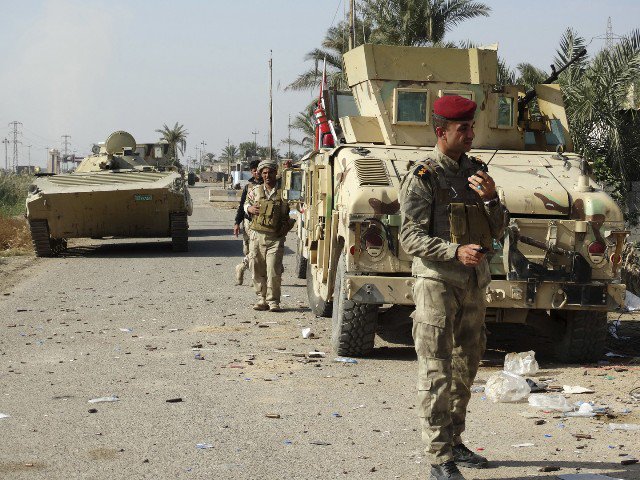Army Commanders: Mosul battle could take months

Iraqi security forces. File photo.

Nineveh (Reuters) The Iraqi government has asked civilians in Mosul to stay at home during the offensive, as humanitarian organizations say they can not cope with an influx of hundreds of thousands of people displaced from the city.
More than one million people are believed to remain in the city, the largest in northern Iraq.
Defeating Islamic State in Mosul, Islamic State’s last major bastion in Iraq, is seen as vital to destroying the “caliphate” declared by the group’s leader, Abu Bakr al-Baghdadi, from the pulpit of Mosul’s Grand Mosque in July 2014.
But commanders have said the battle could take months. Dozens of districts must be taken in the east before attacking forces reach the Tigris River which splits Mosul into east and west. U.S. air strikes have taken out four of the five river bridges used by the militants.
Major General Najm al-Jubbouri, one of the army’s top commanders, told Reuters that the western part of the city could be the more dangerous.
To the south, Iraqi army brigades are now advancing slowly on the remaining Islamic State-held villages before reaching the city limits. To the west, the mostly Iranian-backed Shi’ite militias known as al-Hashd al-Shaabi have cut off the highway to Syria, but they have yet to close in on the city.
“The force left in front of us is small, unable to stop our advance. Their spirit is broken,” Major General Abdul Ghani al-Asadi, one of the commanders of the Special Forces said.
“We have killed more than 992 fighters on our front plus more wounded … Their supplies and communications to the outside world are cut. They stage fewer suicide bombings.”
Iraqi military estimates initially put the number of insurgents in Mosul at 5,000 to 6,000, facing a 100,000-strong coalition force. But Asadi said the figure for the Islamic State presence may have been too high.
Iraqi authorities have not released estimates of civilian casualties but the United Nations says growing numbers of injured, both civilians and military, are overwhelming aid groups.
